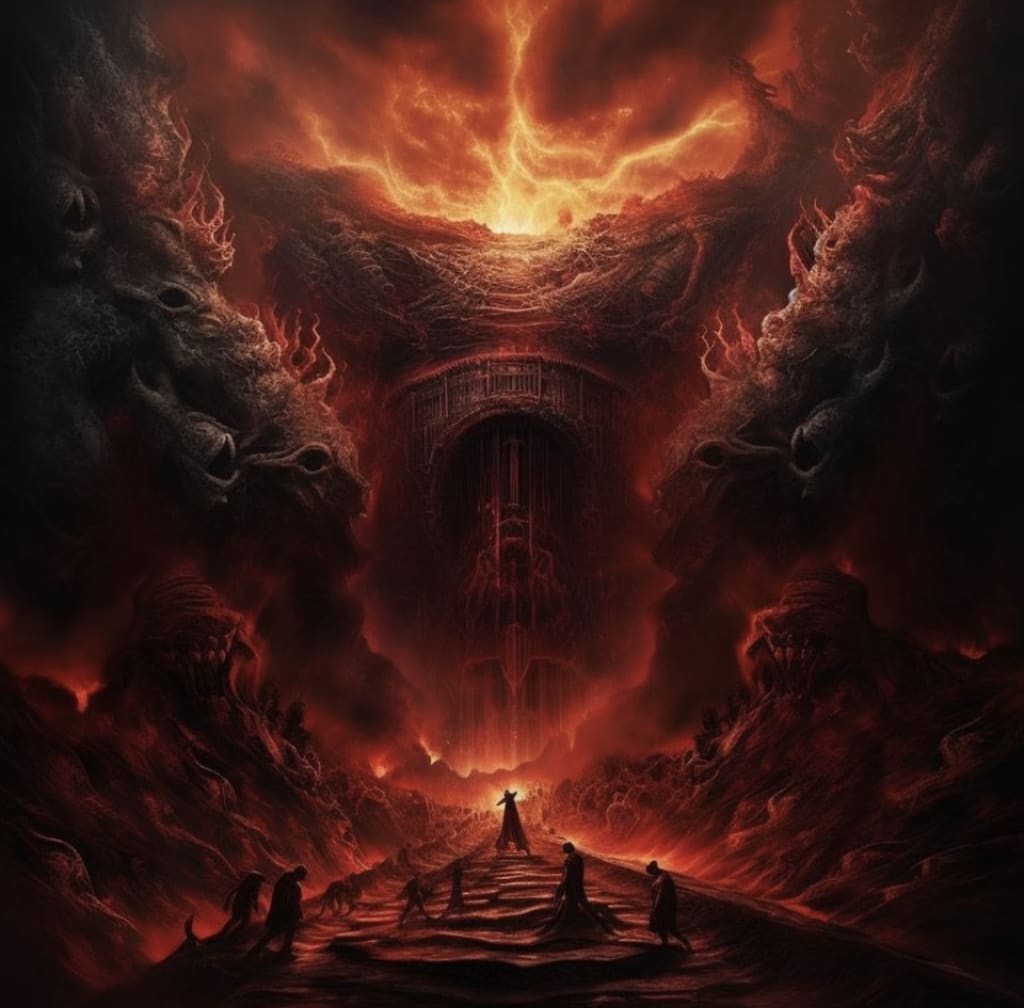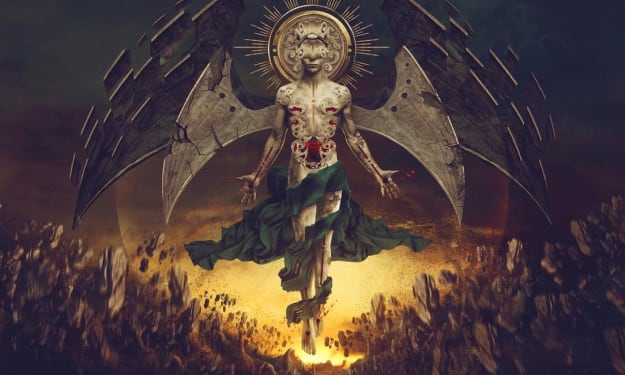Understanding Hell:A journey into the depths of Human imagination
Understanding Hell:Exploration and Interpretation

Introduction:
Throughout history, humans have been captivated by the concept of Hell—a realm of eternal punishment and suffering. Depicted in various religious and cultural traditions, Hell serves as a cautionary tale, a place where the wicked are condemned for their sins. In this article, we embark on an exploration of Hell, delving into its origins, interpretations, and the intriguing role it plays in shaping our understanding of morality and the afterlife.
Origins and Cultural Depictions:
The concept of Hell is deeply rooted in religious traditions, most notably in Christianity, Islam, and Buddhism. In Christianity, Hell is described as a fiery abyss, a place of torment and separation from God. Islam portrays Hell as a realm of intense punishment, with vivid descriptions of scorching winds and boiling water. Buddhism, on the other hand, views Hell as one of the six realms of existence, where individuals suffer as a result of their negative karma.
Beyond religious traditions, Hell has found its way into folklore, literature, and art. Dante Alighieri's "Inferno," a cornerstone of Western literature, presents a vivid and intricate vision of Hell, divided into nine circles, each representing a different sin. Artists like Hieronymus Bosch and Salvador Dalí have also immortalized the imagery of Hell through their paintings, revealing grotesque and nightmarish landscapes.
Symbolism and Moral Reflection:
While Hell is often depicted as a physical place of punishment, it also serves as a metaphorical symbol. It represents the consequences of our actions and the accountability we face for our moral choices. The idea of eternal suffering in Hell prompts individuals to reflect on their behavior and strive for righteousness, both in their earthly lives and in anticipation of a possible afterlife.
Moreover, Hell symbolizes the ultimate justice and balance in the universe. It suggests that evil actions will not go unpunished, instilling a sense of hope and comfort in those who seek justice for the wrongs committed against them. It acts as a reminder that, in the grand scheme of things, morality prevails and righteousness triumphs.
Interpretations and Evolving Perspectives:
Over time, interpretations of Hell have evolved, reflecting changes in societal values and religious beliefs. Some individuals and religious groups have moved away from literal interpretations of Hell, opting for metaphorical or symbolic understandings instead. They may see Hell as a state of consciousness rather than a physical location, emphasizing the psychological torment experienced as a consequence of immoral behavior.
Additionally, various theological perspectives offer alternatives to the traditional view of Hell as eternal damnation. Concepts such as purgatory and annihilationism provide alternative visions, suggesting that individuals have the opportunity for redemption or that the souls of the wicked may eventually cease to exist.
Contemporary Relevance and Secular Interpretations:
In an increasingly secular world, Hell continues to hold a place in popular culture, often shedding its religious connotations. It can be found in literature, movies, and even casual expressions. The idea of a personal hell, a state of internal suffering and regret, transcends religious boundaries and resonates with people seeking to convey the intensity of their anguish or despair.
From a secular perspective, Hell can be seen as a metaphor for the consequences of our actions in this life. It serves as a reminder that our choices have repercussions, not only for ourselves but also for those around us. It prompts introspection and encourages individuals to strive for personal growth, empathy, and ethical behavior.
Conclusion:
Hell, with its rich history and multifaceted interpretations, captivates the human imagination. It has served as a warning, a symbol, and a reflection of our collective moral consciousness. While religious and cultural depictions of Hell may differ, the underlying message remains consistent—our actions





Comments
There are no comments for this story
Be the first to respond and start the conversation.